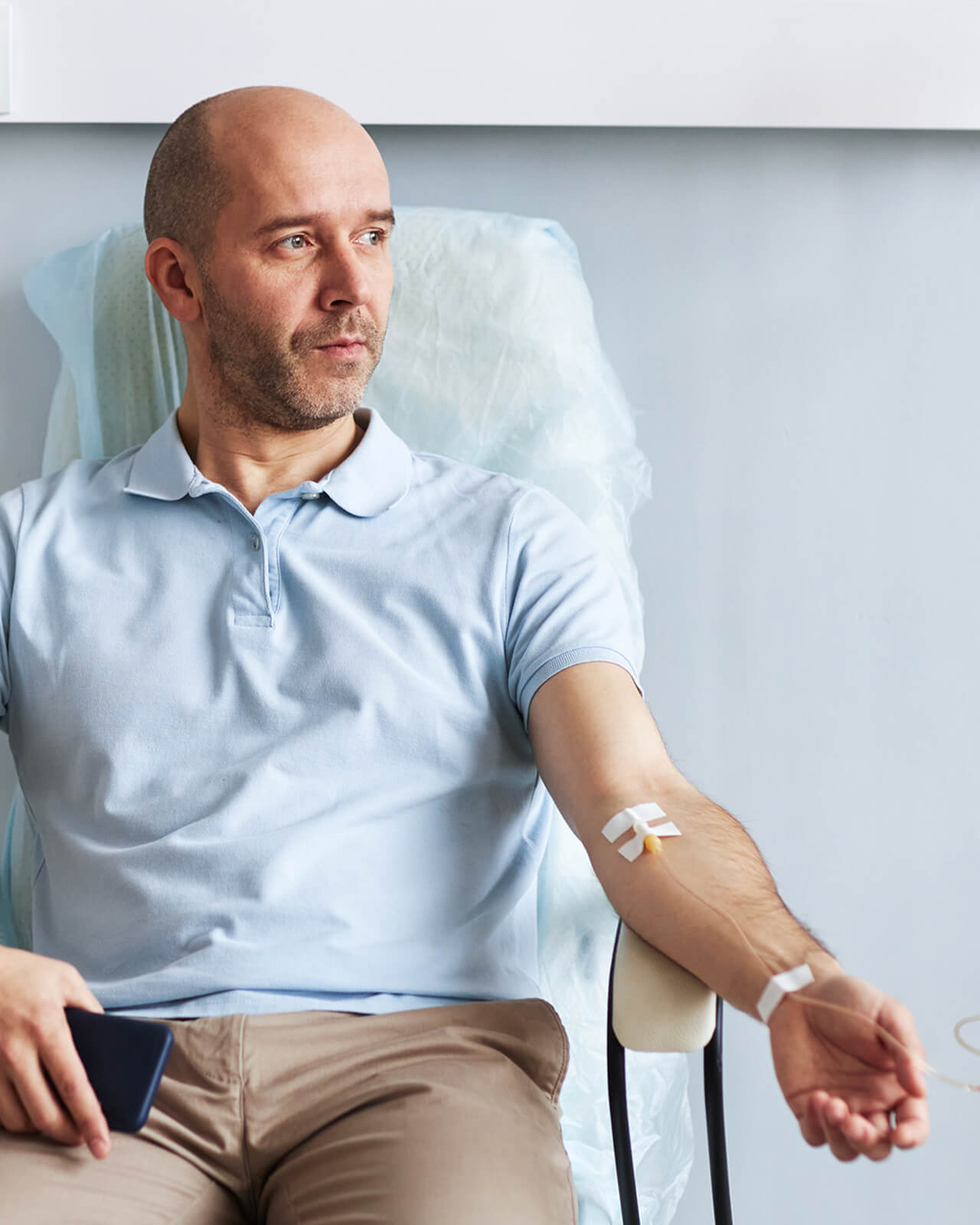Riskguard® Hereditary Cancer test
The Riskguard test is an assessment tool that can help uncover hereditary cancer risk. With just a simple blood, saliva or buccal (cheek) swab sample, it checks for hereditary genetic changes that can cause an increased risk for certain cancers.
Benefits of the Riskguard test
Being proactive now can make a difference for the future

Powerful information about hereditary cancer risk
While many people have a history of cancer in their families, only 10-15% of cancers are hereditary.1 By testing for hereditary cancer conditions, patients and healthcare providers can better determine the optimal monitoring or treatment plan.
The Riskguard test can offer powerful insights for patients who have a family history of cancer, patients who have been newly diagnosed with cancer, and even patients who have already undergone cancer treatment.

Tools for personalized treatment and risk-management
The Riskguard test can help patients and providers tailor individualized treatment and risk-management journeys, guided by genetics.2-7

Results that empower you and your family members
Receive easy-to-understand results with potential next steps that providers and patients can use for personalized care planning.
The Riskguard test can also identify family members at risk and help them make more informed decisions about strategies to reduce their cancer risk.
The Riskguard test checks 59 genes across 11 common cancer types
Approximately 1 in 8 cancers are due to a hereditary syndrome.1 The Riskguard test helps patients learn more about their genetic risk for some of the most common and aggressive cancer types.
Colorectal Breast Prostate Pancreatic Ovarian Endometrial Skin Gastric Kidney Endocrine Lung

The Riskguard test process
Determine whether the Riskguard test is a good fit
Take the test — both in-office and at-home tests are available
Access the results online and discuss next steps
You have coverage options
We understand navigating coverage can be overwhelming. Exact Sciences
- Coverage for eligible patients including Medicare and commercial insurance
† - Specialized support for billing insurance and prior authorization
- Flexible payment options for patients

We're here for you
With questions about ordering the Riskguard test, insurance billing and payment options, checking results, or getting connected with a genetic counselor, call us at +1 866-662-6897 or email us at riskguard@exactsciences.com .
References
- Genomic Health, Inc., an Exact Sciences company, is the billing entity for Riskguard.
- Medicare and commercial insurance plans have specific inclusion criteria based on personal and family history of cancer.
- DeBortoli E, McGahan E, Yanes T, et al., “ Utility of Germline, Somatic and ctDNA Testing in Adults With Cancer,” Cancer Medicine 14, no. 15 (2025): e71080, https://doi.org/10.1002/cam4.71080.
- Geyer CE Jr, Garber JE, Gelber RD, et al. OlympiA Clinical Trial Steering Committee and Investigators. Overall survival in the OlympiA phase III trial of adjuvant olaparib in patients with germline pathogenic variants in BRCA1/2 and high-risk, early breast cancer. Ann Oncol. 2022;33(12):1250-1268.
- Hussain M, Mateo J, Fizazi K, et al. PROfound Trial Investigators. Survival with olaparib in metastatic castration-resistant prostate cancer. N Engl J Med. 2020;383(24):2345-2357.
- Golan T, Hammel P, Reni M, et al. Maintenance olaparib for germline BRCA-mutated metastatic pancreatic cancer. N Engl J Med. 2019;381:317-327.
- Ledermann J, Harter P, Gourley C, et al. Olaparib maintenance therapy in patients with platinum-sensitive relapsed serous ovarian cancer: A preplanned retrospective analysis of outcomes by BRCA status in a randomised phase 2 trial. Lancet Oncol. 2014;15:852-861.
- Domchek SM, Friebel TM, Singer CF, et al. Association of risk-reducing surgery in BRCA1 or BRCA2 mutation carriers with cancer risk and mortality. JAMA. 2010;304(9):967-975.
- Ladabaum U, Wang G, Terdiman J, et al. Strategies to identify the Lynch syndrome among patients with colorectal cancer: a cost-effectiveness analysis. Ann Intern Med. 2011;155(2):69-79.
The Exact Sciences Riskguard test was developed, and its performance characteristics validated by an Exact Sciences laboratory following College of American Pathologists (CAP) and Clinical Laboratory Improvement Amendments (CLIA) regulations. The test is performed in Marshfield, WI at PreventionGenetics LLC, a wholly owned subsidiary of Exact Sciences. PreventionGenetics is accredited by CAP, certified under CLIA regulations, and qualified to perform high-complexity clinical laboratory testing. It has not been cleared or approved by the US Food and Drug Administration or other notified regulatory authority. Genomic Health, Inc., an Exact Sciences company, is the billing entity for the Riskguard test.